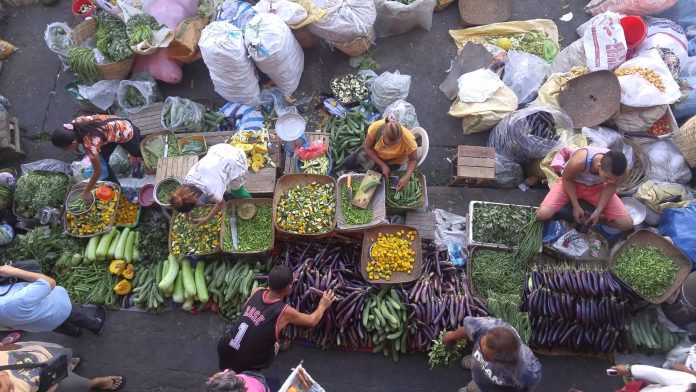
MANILA – Inflation topped 6 percent in August to mark a fresh nine-year high, the Philippine Statistics Authority (PSA) reported on Wednesday.
Data released by the statistics office showed inflation clocked in at 6.4 percent in August, the fastest in over nine years since inflation came in at 6.6 percent in March 2009.
It is also faster than the 5.9-percent forecast of the Bangko Sentral ng Pilipinas (BSP), which cited a range of 5.5 to 6.2 percent.
The Department of Finance earlier forecasted inflation at 5.88 percent, with food and non-alcoholic beverages contributing 2.98 percentage points.
Five commodity groups registered higher increases, primarily alcoholic beverages and tobacco which surged by 21.9 percent.
The food and non-alcoholic beverages index was up by 8.5 percent, miscellaneous goods and services by 4.0 percent, household equipment up by 3.5 percent, and recreation and culture by 2.4 percent.
The rest of the commodity groups either moved slower or had negative annual rate with the index of clothing and footwear retaining at its previous month’s annual growth rate of 2.4 percent,” the PSA said
In the National Capital Region (NCR), inflation went up by 7.0 percent in August, largely fueled by the following items:
- transport, 10.2 percent
- food and non-alcoholic beverages, 8.6 percent
- household equipment, 3.3 percent
- miscellaneous goods, 4.7 percent
- recreation and culture, 2.3 percent
Bank of the Philippine Islands lead Economist Emilio Neri Jr. said the inflation numbers for August might prompt the BSP to raise interest rates anew.
“Bangko Sentral ng Pilipinas may have to hike again during their meeting to temper inflationary expectations,” he said in a tweet.
Inflation is one of the key factors considered by the Monetary Board in deciding whether or not current conditions warrant a change in monetary policy, with meetings scheduled every six weeks.
The BSP has raised policy rates thrice so far this year – 25 basis points each in May and June, and another 50 basis points last month.
The BSP reiterates its strong commitment and readiness to take all necessary policy actions to address the threat of high inflation and deliver on its primary mandate of price stability,” BSP Governor Nestor Espenilla Jr. said.
Espenilla, however, called for the implementation of non-monetary policies to address inflation, such as the proposed rice tariffication law.
“An unfortunate confluence of cost-push factors continue to drive consumer price inflation in August beyond the acceptable target range,” he said in a message to reporters via WhatsApp.
“Much of it has to do with food supply shocks. Rice in particular. These warrant more decisive non-monetary measures to fully address,” he said.
The Agricultural Tariffication Act seeks to lift the quantitative restriction (QR) on rice and allow private distributors to import from countries of their choice.
The central bank also sees higher prices of petroleum products, a result of soaring oil prices in world markets, prompting local producers and traders to pass on higher costs to their consumers.
“Elevated oil prices also continue to impact transport and power prices. At the same time, the peso (along with other currencies) is being adversely affected by emerging market uncertainties and a strong US dollar,” Espenilla noted.
“These are adding to the cost-push pressures. However, it is equally apparent that strong domestic demand is making it too convenient for producers and traders to pass on higher costs and possibly more to consumers.”
Espenilla said it is now crucial to restore inflation back to the 2- to 4-percent target range.
Under the circumstances, we will weigh the need for further monetary policy action. Appropriate recommendations will be presented to the MB at its next policy meeting on September 27. It is most critical at this point to restore inflation back to the target range soonest and securely anchor inflationary expectations,” he said. (GMA News)



